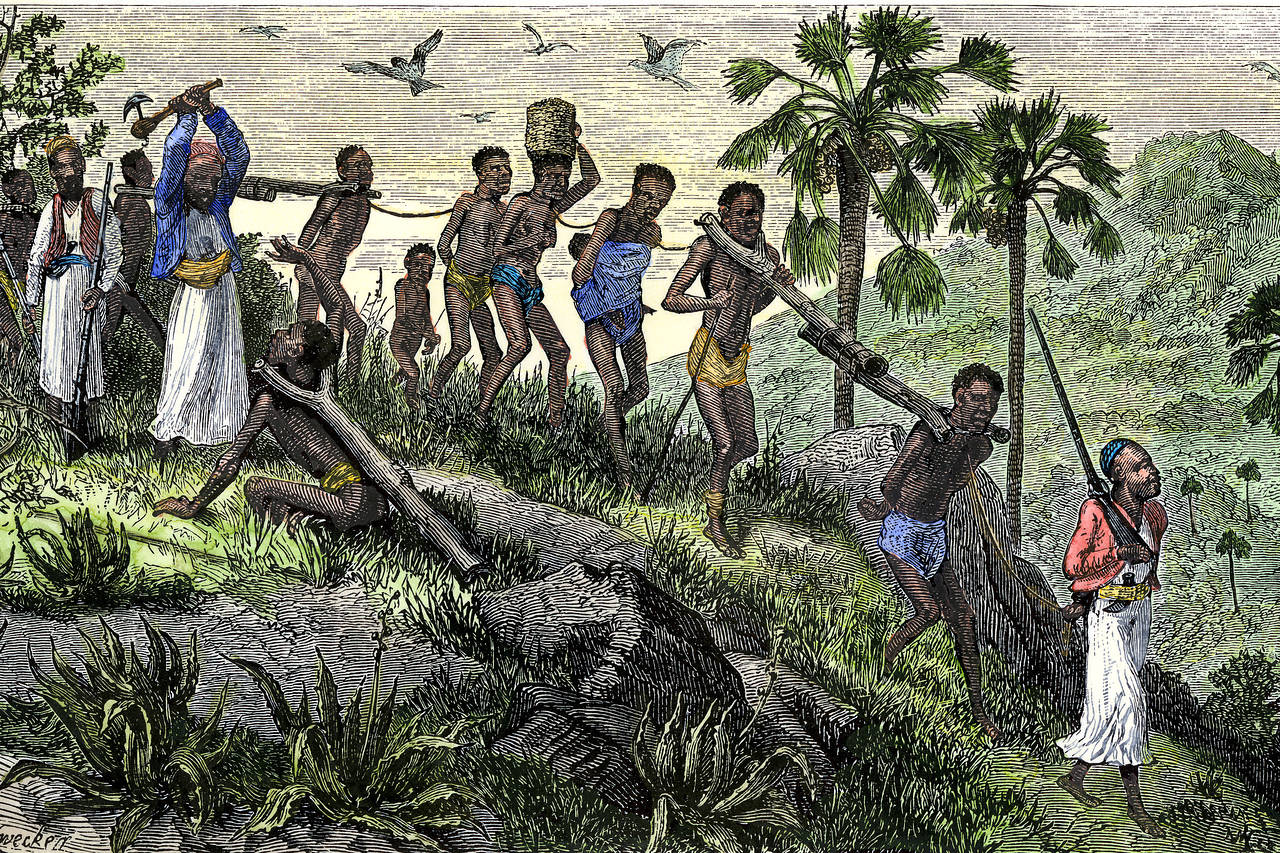A Christian prelate, Theodore, drafted a set of rules pertaining to male and female slaves in seventh-century England. The following is from the second penitential book—that is, a book on penances arising from the failure to adhere to discipline—of Theodore at Canterbury, section XIII:
1. If he is compelled by necessity, a father has the power to
sell his son of seven years of age into slavery; after that,
he had not the right to sell him without his consent.
2. A person of fourteen [years] can make himself a slave.
3. A man may not take away from his slave money which he has acquired by his labor.
4. If the master of a male and a female slave joins them in marriage and the male slave or the female slave is afterward set free, and if the one who is in slavery cannot be redeemed, the one who has been set free may marry a free-born person.
5. If any freeman takes a female slave in marriage, he has not the right to put her away if they were formerly united with the consent of both.
6. If anyone acquires [as a slave] a free woman who is
pregnant, the child that is born of her is free.
7. If anyone sets free a pregnant slave woman, the child
which she brings forth shall be [in a state] of slavery.
Early Welsh law also speaks of slavery. For example, the so-called Welsh Canons, dating from c. 550-650, include entries such as these:
1. If anyone commits homicide by intention, he shall pay three female slaves and three male slaves and shall receive security…
4. If a slave kills a freeman, and this was through the freeman’s fault, and if he was slain with a cudgel or an axe or a hoe or with a knife, that murderer shall be given over to the parents, and they shall have the power to do [with him] what they will.
5. If any master permits his slave to bear arms and he slays a freeman, the master shall be prepared to hand over the slave and another with him…
22. If any freeborn man or slave commits a theft by night and in the act of committing it is struck with a spear and killed, he who slays him shall have no need to make restitution…
38. If any slave kills another’s slave, he shall remain alive as the joint property of the masters.

